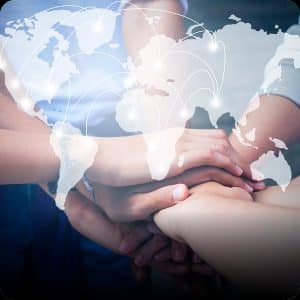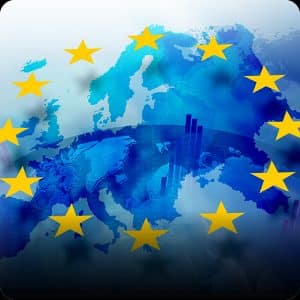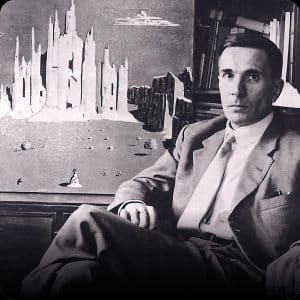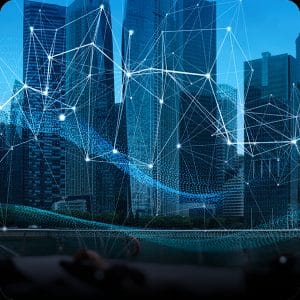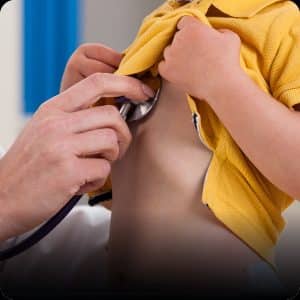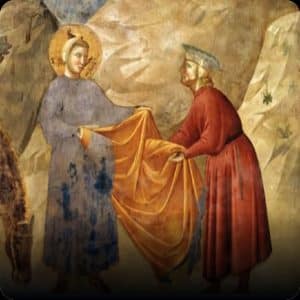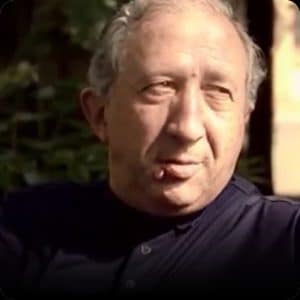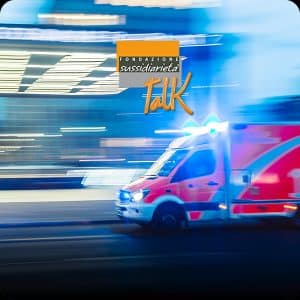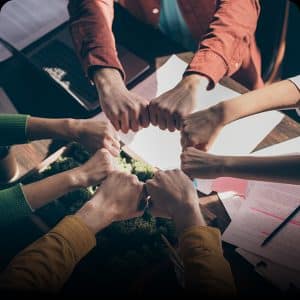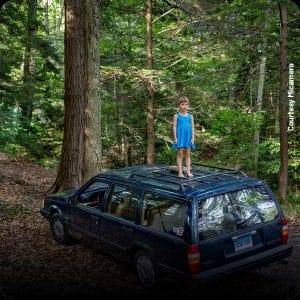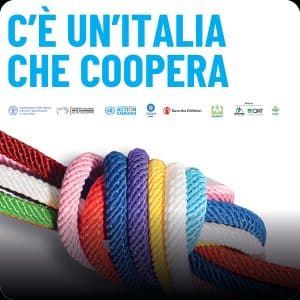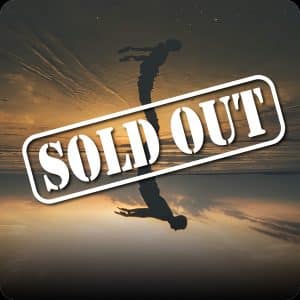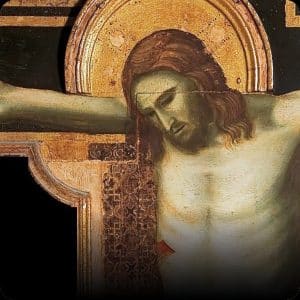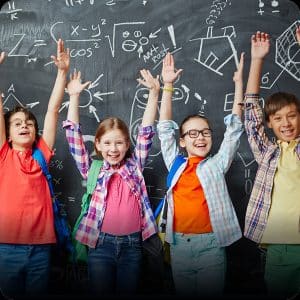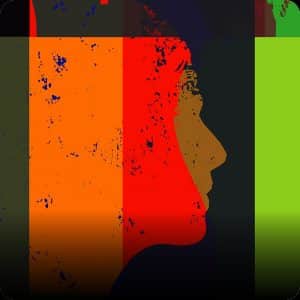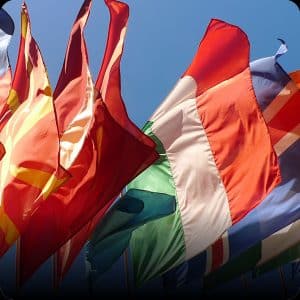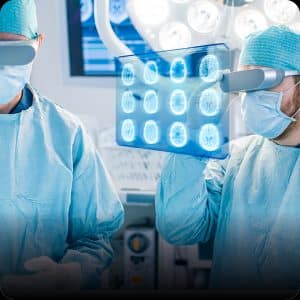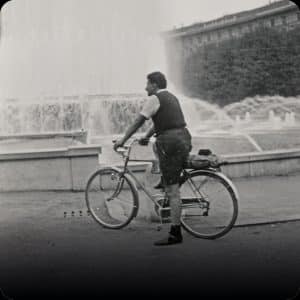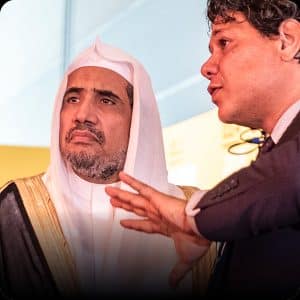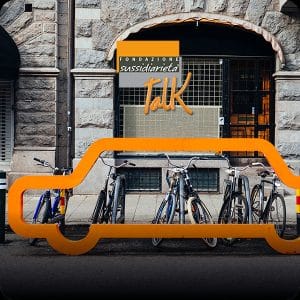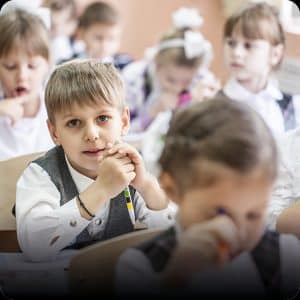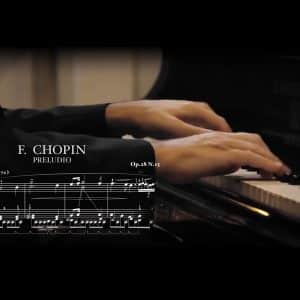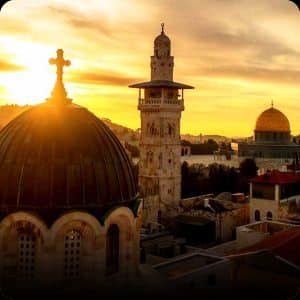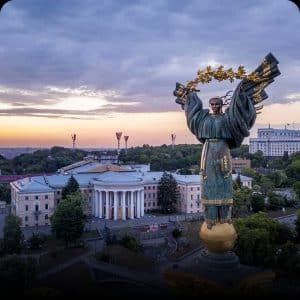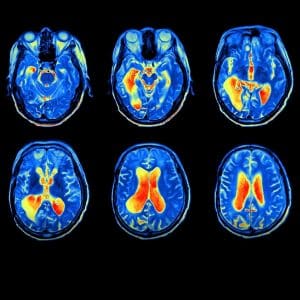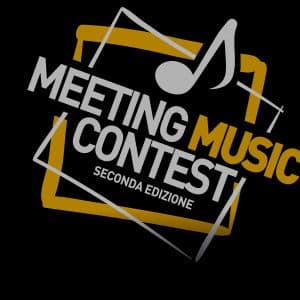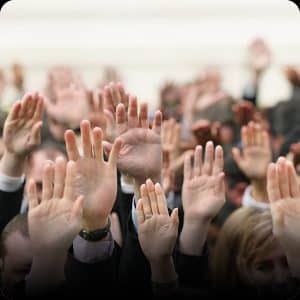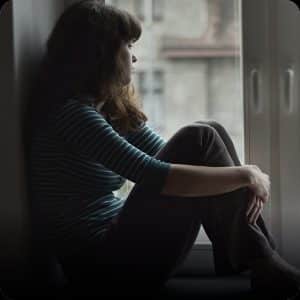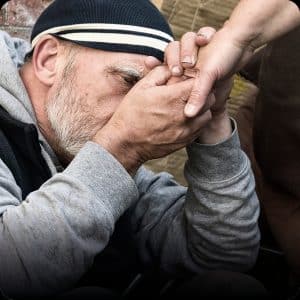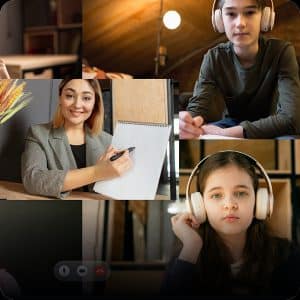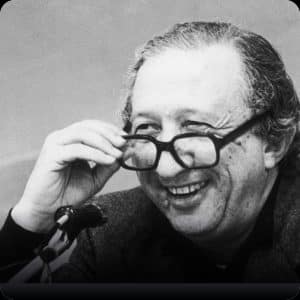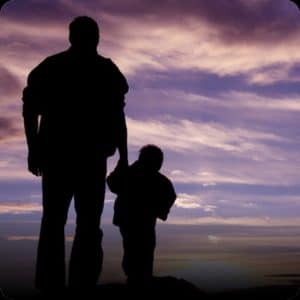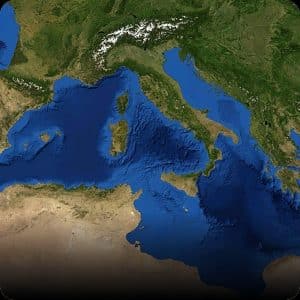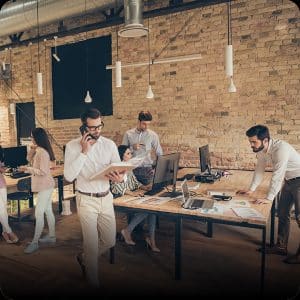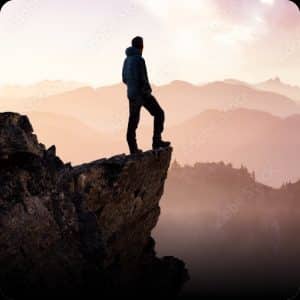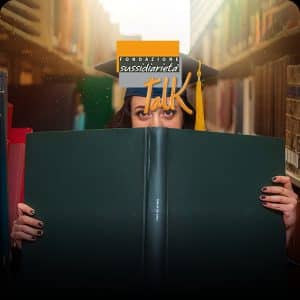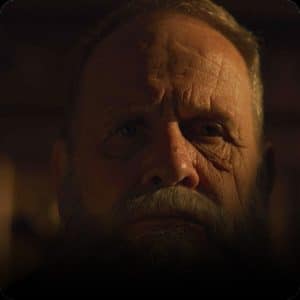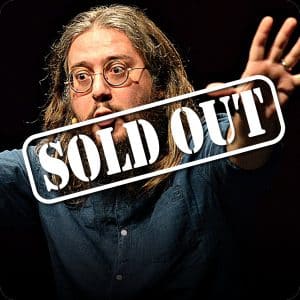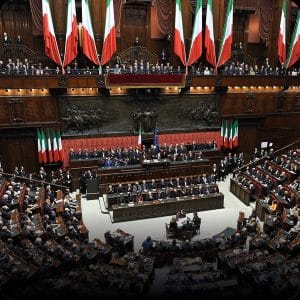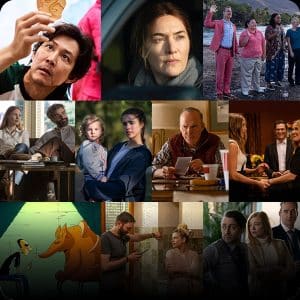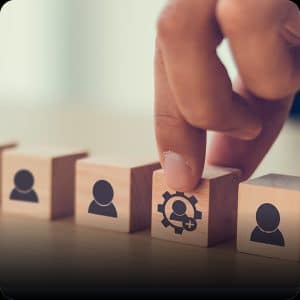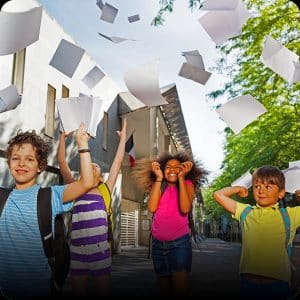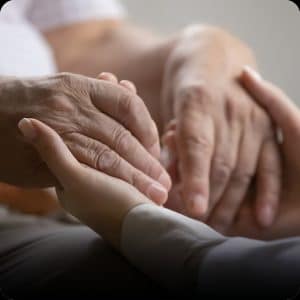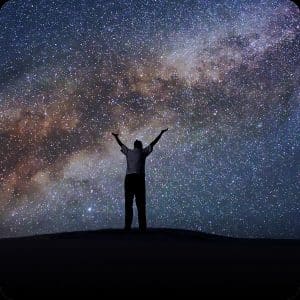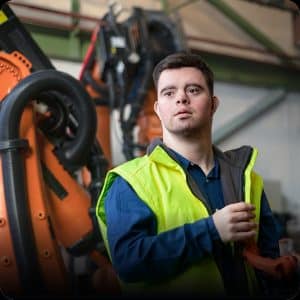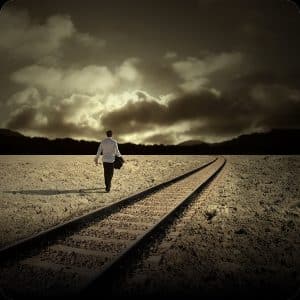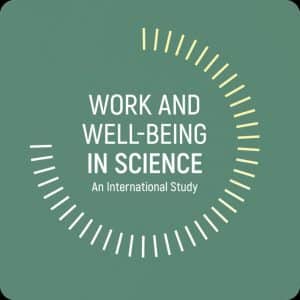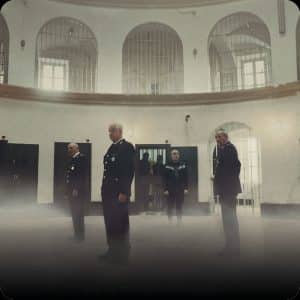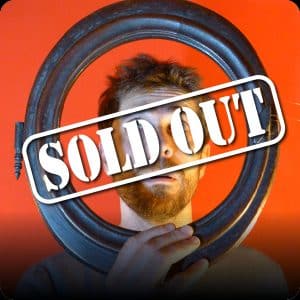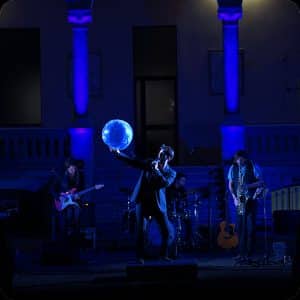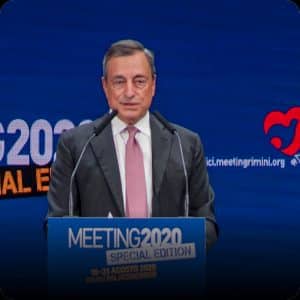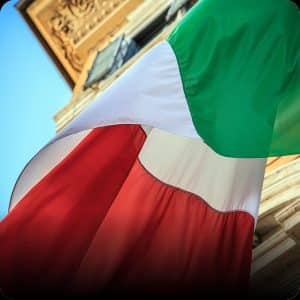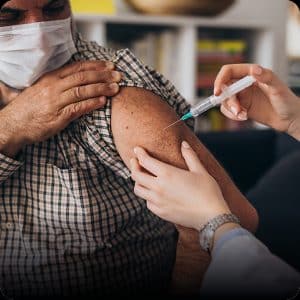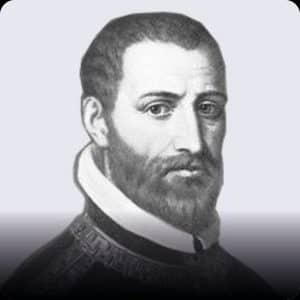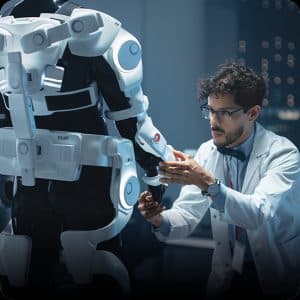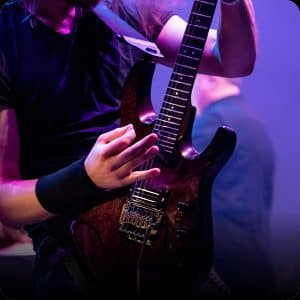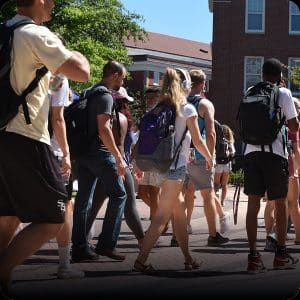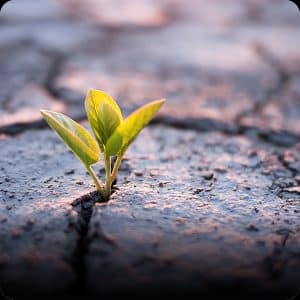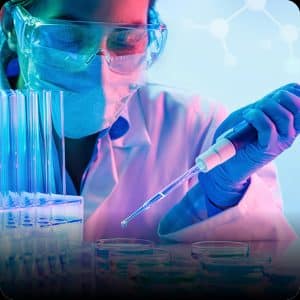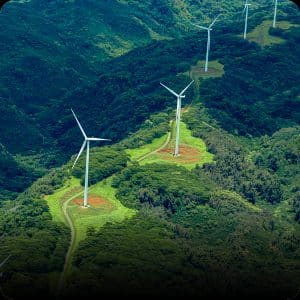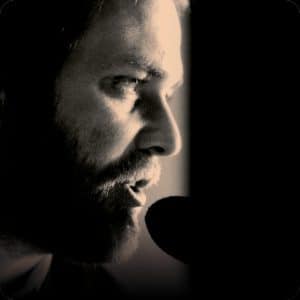2022 Program
Saturday 20 August
Meetings
ARTISANS OF PEACE. THE PASSION TO CONCILIATE
The war in Ukraine made us realise that the peace enjoyed by Europe after 1945 was not to be taken for granted. In recent years we have too often forgotten about the wars and the many conflicts in other parts of the world. In Africa and the Middle East many people live under political oppression, suffer poverty, risk persecution and are killed for ethnic reasons. The Church has always been committed to overcoming conflict and violence, trying to foster dialogue and forgiveness. Now more than ever it is paramount to express this passion to reconcile even in situations that seem unresolvable in order to support all those who want to build peace, starting from their own lives.
EUROPE AND THE FUTURE
What kind of Europe can and must we expect in the coming years? Which issues will be at the centre of European political, economic and social action? What role will Europe play in a completely changed and always more difficult to understand international scenario, featuring an increasingly uncertain horizon?
SOMEBODY IS WAITING FOR YOU. DINO BUZZATI AND THE EDUCATIONAL EXPERIENCE OF THE COLLOQUI FIORENTINI
The “Colloqui Fiorentini – Nihil Alienum” is a conference on Italian literature that began in 2002 and which has involved over the years thousands of teachers and students from all regions of Italy and several countries around the world, putting man’s heart and his passion for life and destiny back at the centre of its study. The 21st edition, held in March 2022, was entitled: 'Dino Buzzati. Somebody is waiting for you'. This event will feature the testimonies of some of the participants, as well as an in-depth look at the method underlying what is an engaging and exciting educational journey and experience, and also a focus on Dino Buzzati and his work.
CYBERSOCIETY AND HUMAN CIVILIZATION
The prefix 'cyber' has literally become overwhelming: cybersociety, cyber-state, cybersecurity... “Cyber” is the English abbreviation for 'cybernetics', which in turn derives from the Greek Kubernetikè (Techne), the (art) of steering the ship, hence the Greek verb kubernao- guberno in Latin, to govern. Today, technology is no longer just an instrument of the human will, it is no longer limited to achieving what has been decided, but it is used to make decisions. Every day we turn to technological systems to know what has happened or what to do; thus, we are increasingly 'governed' by algorithms and software. What room is there still for human civilisation? Is it a slow and irresistible surrender to the power of a 'super-society' or is there still room for a new central role of man, of his ability to study, research, knowledge? What future does our passion for the person have in the algorithmic society?
DESIGN, HABITAT, LIVING
Mario Abbadessa, Senior Managing Director & Country Head of Hines Italy; Luca Pesenti, Associate Professor of General Sociology at Università Cattolica del Sacro Cuore; Franco Spicciariello, Public Policy Director, Italy & Central and Eastern Europe, Amazon Web Services; Patricia Viel, Architect and CEO ACPV ARCHITECTS Antonio Citterio Patricia Viel. Introduced by Guido Bardelli, President of the Compagnia delle Opere.
During the most recent Meeting editions, the topic of urban and local development has been addressed several times, with a particular focus on urban regeneration and inclusive cities. Undoubtedly, these themes have become more meaningful after a two-year pandemic that has deeply affected our quality of life. For example, smart working has not only radically changed the way we work, but has also highlighted new housing needs, especially for families. As a consequence, we need to understand what challenges our cities will have to face in the coming years and how the growing demand for good living conditions, resulting from the dramatic pandemic experience, can be fulfilled by new ways of designing working and living spaces.
IS THE FAMILY PAEDIATRICIAN STILL NEEDED? PAEDIATRICS, BETWEEN PROXIMITY OF CARE AND SYSTEM REFORMS
Free-choice paediatrics differs in some aspects from General Medicine, although it shares the conventional contractual form, a form that has been the subject of much reflection in the historical moment we are living. The challenge of a trust-based relationship with the service recipients remains, moreover the system of first-line care needs an increase in performance and accessibility, and finally how can a reform model equally encompass the professional satisfaction needs of its practitioners, the service recipients needs and the system of care requirements.
THE ECONOMY CHANTS THE BEAUTY OF GOOD BUSINESS
Fabio Bonanni, Secretary of the Associazione San Giuseppe Imprenditore (ASGI), professional and communications consultant. Introduced by Daniele Garavaglia, director of Impresa Etica, journalist and contributor to Avvenire. The debate will be followed by a screening of the film "Cantico Economico", a play based on an idea by Oreste Bazzichi, produced and directed by Matteo Bonanni on a text by Gianpiero Pizzol inspired by Franciscan economic theology.
Ten years ago, the Associazione San Giuseppe Imprenditore (Saint Joseph Entrepreneur Association) was founded with the aim of helping entrepreneurs and self-employed workers in serious difficulty and re-evaluating the noble mission of doing business, inspired by the Gospel, the Church's social doctrine and the principles of fraternal economy founded and developed by Franciscan theologians.
CHRISTIANITY AS AN EVENT. THE THEOLOGICAL THOUGHT OF LUIGI GIUSSANI
Luigi Giussani is one of the most original voices of our time. Many of his insights and reflections in the theological, philosophical and pedagogical fields have profoundly, if sometimes surreptitiously, marked contemporary culture. Some of them have been widely taken up, to the point of becoming part of the common heritage. His tireless commitment to education and his relationship with generations of young people and adults have also given his thought a particular density of expression and communicative power, enabling it to reach people of all ages and backgrounds. The centenary of his birth provides a timely opportunity to highlight his contribution and recognise his living and active presence in our history today.
TALK “CHANGE IS POSSIBLE”. HEALTHCARE BEYOND COVID
Nino Cartabellotta, President of Gimbe Foundation; Giuliano Rizzardini, Director of the Department of Infectious Diseases at the Sacco Hospital in Milan; Roberto Speranza, Minister of Health; Giorgio Vittadini, President of the Foundation for Subsidiarity. Introduced by Enrico Castelli and Irene Elisei.
After two years of pandemic, the debate will consider the health situation in our country, highlighting the changes produced by the health emergency, and emphasizing the attempts and experiences leading to new management solutions for health care issues.
THE TIME OF ATTENTION
What do we mean when we talk about “attention economics”? And why do authentic human relationships seem even more crucial to us after two years of pandemic? Can we go back to being once again the leading actors of our own lives or at least start to be? What role does the conscious use of technology and social media play in this? What risks and opportunities lie ahead for a life that demands to be lived right now?
WORK: THE PERSON AT THE CENTRE BETWEEN EXPERIENCES AND WISHES
The meeting is the result of a conversation between some young people who, having joined the job market as employees, managers, entrepreneurs, professionals, consultants, trade unionists, researchers and teachers, wanted to address the challenges they face in their daily operations. Andrea Fumagalli is HR Manager in the air transport sector, Barbara Capodiferro is Executive Director in an investment bank, Daniele Novara is Customer Experience Director in the tech sector, Luca Martellosio is an entrepreneur and Technical and Production Director in the construction industry, Michela Ceriani is Senior Consultant in the field of organisational development, and Pietro Duca is Compensation Specialist in the banking sector. After their meeting they decided to further share and investigate wishes and experiences, as well as question the way we look at work and its many dimensions, including very practical ones, with a special focus on one issue: is it possible to put the passion for the person at the centre of work? This debate, as well as a record of its preceding journey, is intended above all to be an invitation to continue and broaden the spectrum of the discussion.
“SAYING YES” A CONVERSATION BETWEEN GUS POWELL AND JOEL MEYEROWITZ
On the occasion of the Family Car Trouble exhibition, Gus Powell (New York, 1974) will be in conversation with another renowned American photographer, Joel Meyerowitz (New York, 1938), to discuss how photography can represent and celebrate life in front of and around us. Is there a proper distance to things, and where does our control go? How do we narrate life and death?
IN OCULIS FACTA. THE ROLE OF IMAGES IN SCIENTIFIC KNOWLEDGE
Vittorio Cannatà, Head of the Medical Physics Unit, IRCCS Children's Hospital Bambino Gesù, Rome; Stefano Facchini, Researcher, University of Milan. Introduced by Nicola Sabatini, Euresis Association.
What is the importance of the image in the particular path of knowledge of reality that science offers? What is the role of the human subject in producing and using a scientific image? Starting from these questions we will try to identify with the particular look at reality of those who do scientific research. The encounter with two experiences in very different fields, such as research in the formation of planets in astrophysics and in diagnostic and therapeutic imaging in the biomedical field, will allow us to surprise the impressive capacity developed by man to reveal hidden details of reality through images increasingly sophisticated and surprising. Investigating reality in such a careful and profound way turns out to be a "great adventure" (Richard Feynman), which always raises new questions about the origin and destiny of everything.
Arene
INSTITUTIONAL COMMUNICATION: NEW MEDIA FORMS AND SUSTAINABLE DEVELOPMENT
Communication for development is crucial for every international cooperation project and a key tool to convey the importance of sustainable development for the wellbeing of the Planet and of the People. Communicating means informing and informing means making each one of us aware and responsible for the impact that individual daily actions can have on the Planet. We are the ones changing the world with their behaviours, lifestyles and decisions. A message that we want to get across especially to new generations, starting with partnerships with new forms of journalism and communication capable of talking about complex issues that are not always easy to understand through simple, dynamic, immediate and innovative forms of language.
A SURPRISING CONTRAST
Alberto Zorloni, Nikon Europe BV and Alex Costa, biologist, University of Milan. Moderator Cristina Lenardi, physicist, University of Milan.
Shows
“LIBERI TUTTI!” [Free All!] Original production
Tickets available on Ticketmaster.it
Sunday 21 August
Meetings
HOLY MASS
WHO AM I? HUMAN NATURE AND THE RELATIONSHIP WITH NATURE
Raffaele Cattaneo, Councillor for Environment and Climate of Lombardy Region; Davide Rondoni, Writer and poet; Giorgio Vittadini, President of the Foundation for Subsidiarity. Introduced by Fabrizio Piccarolo, Director of Lombardy Environmental Foundation.
The relationship between Man and Nature, always fragile yet essential, results in a specific task: to preserve and cultivate Creation. We will ask our guests how this mission can be carried out in each one of the following areas: political, agricultural, food and social.
SCHOOLS AS PLACES OF RECEPTION AND INCLUSION
"Never before schooling has been felt as such a strong need. The need is for a schooling system that supports people and help them become citizens; that empowers people and let them discover themselves; and that above helps people in building communities. All this makes up for a unique and extremely demanding challenge for schooling. (...) Schools must also be places nurturing affection because, in an age of lurking loneliness they remain places where people can still learn to share." (From Minister F. Bianchi's speech at the Educational Innovation Festival, September 4, 2021).
A PASSION FOR THE PERSON
The title and theme of the 43rd edition of the Meeting for Friendship Among Peoples will be discussed by Cardinal Matteo Maria Zuppi, President of CEI, introduced by Bernhard Scholz, President of the Meeting.
THE STRENGTH OF FREEDOM AND THE RESTORATION OF PEACE
The European culture based on the inviolable dignity of freedom has always been a shared heritage overcoming state borders from the Atlantic to the Urals. Although often betrayed by the States themselves with their wars and totalitarian systems, freedom has remained and still is a common reference asset that has made it possible on many historical occasions to rebuild peaceful relations and restore mutual understanding. But what does it mean today to protect freedom from new threats coming from European societies, and most dramatically from the war in Ukraine? In March 2017, in front of the European leaders, Pope Francis, quoting Paolo VI and the Populorum Progressio, said that, “Development is the new name of peace”. Can this culture, this concept of freedom and development be a springboard to rebuild peace today?
POWERLESS HEALTHCARE AGAINST NEW DISEASES?
"I'm going to prescribe you an antibiotic just in case... Doctor, you don’t prescribe me any antibiotics, really?" We all take antibiotics, but to what extent is this changing an ecosystem made or interconnected components? In recent years, healthcare workers and patients together have become, certainly unconsciously, selectors of strains of microorganisms that are increasingly resistant to treatments based on weapons that are starting to be ineffective. Today, antibiotic resistance has become a major public health issue worldwide with huge implications both from a clinical point of view (increased morbidity, mortality, days of hospitalisation, possibility of resulting complications, chance of epidemics onset) as well as from an economic perspective due to the additional costs of more expensive medication and procedures, longer hospital stays and possible induced disability. Cross-cutting societal education is crucial in order to make choices based on scientific evidence.
ENERGY SUPPLY AND INDEPENDENCE
The dramatic situation in Ukraine has inevitably changed the energy policies of EU member states, some of which, like Italy, are grappling with the need to quickly find new energy supply sources to keep its prosperity, production and living standards. Other authoritative representatives of the Italian industry, will discuss openly and uncompromisingly about the future of our country.
THE CHRIST OF THE VIA EMILIA. FROM GUARESCHI TO THE PRESENT DAY
The event promoted this year by the cultural association "Gruppo Amici di Giovannino Guareschi" takes its cue from the title of this year’s Meeting "A Passion for the Person" and features the participation of five priests, each one with a particular experience, who will tell what is the Christ they encounter every day in their mission. The speeches will follow the Via Emilia, the subject of the "Route 77" exhibition, which returns to Rimini after four years, accompanied by the Dei "Superleggera" bicycle identical to the one used by Giovannino Guareschi on his cycling tour along the consular road.
THE RELIGIOUS SENSE: THE SPACE OF AN ENCOUNTER
“The Religious Sense, the title of one of Father Luigi Giussani's most important books, is the original sentiment that nourishes the hearts of men and women who have always been in search of an ultimate sense, of a Mystery that no longer remains so, but is knowable in everyday life. This theme will be discussed by the Secretary General of the World Muslim League, Al-Issa.
TALK”CHANGE IS POSSIBLE”. MOVING WELL TO LIVE TOGETHER
Pietro D'Arpa, Vice President Supply Chain Europe Procter&Gamble; Andrea Gibelli, President of FNM Group; Alessandro Morelli, Vice-Minister for Infrastructure and Sustainable Mobility; Enrico Pagliari, ACI technical area coordinator; Alessandro Perego, Professor of Logistics Management and Director of the Department of Management Engineering, Polytechnic University of Milan. Introduced by Enrico Castelli and Irene Elisei.
Mobility serves to ensure both the relations between people and the exchange of goods. It is therefore a primary need, 'almost' a right, because people do not want to live not in isolation but in community contexts. Economic and social development needs efficient infrastructure (and transport services).
EDUCATION AND SCHOOL INNOVATION. TRAINING STANDARDS FOR COMPLEX TIMES
Simona Favari, School Manager, Istituto Istruzione Superiore Volta, Castel San Giovanni; Marco Ferrari, Headmaster Liceo Malpighi, Bologna; Franco Vaccari, Founder and President of Rondine Cittadella della Pace. Introduced by Carlo Di Michele, President Diesse.
These times we are going through are uncertain and complex, for everyone. Even in schools, where today the encounter between adults and children seems to be heavily influenced by social, economic and health emergencies. Yet also and precisely in the classrooms many seeds of innovation as well as of intelligent and resourceful leadership are blossoming, initiating new organisational and teaching standards that are up to new educational challenges. As always, reality precedes us and shows us where to look. An event to document some of these experiences.
TOCKÀ: THE UNIQUE MOMENT
Docufilm dedicated to the centenary of Father Luigi Giussani: eight students set out in search of the unique moment, the encounter with what fulfils the heart's desire, between Pascoli, Caravaggio, Chopin ...Dialogue between the leading players and the scriptwriter.
A GOOD OVERCOMING BORDERS
Two stories united by a great passion for the person, from its birth, to the attempt to snatch it from death, in the Holy Land, in spite of its divisions, conflicts and prejudice, which however may not be the last word. Trust, direct personal involvement, the testimony of those who deeply care for those in need, are the greatest hope for true peace, in a place that has never known it. Journalist Alessandra Buzzetti will guide us through this journey of discovery of two leading figures of a new world, Azezet Habtezeghi Kidane, Comboni Missionary, and Doctor Billan, head of radiotherapy.
FROM UKRAINE WITH LOVE. CULTURE, POETRY AND ART OF A LIVING COUNTRY
We will ask the speakers about their work as intellectuals and artists: where does their commitment come from? What forms has it taken? What has marked their work in the context of a country with a great tradition and marked by the communist years?
Arene
FROM LASCAUX TO BLACK HOLES. THE PERSON AND THE IMAGE
Curated by Associazione Euresis and Camplus.
Stefano Facchini, astrophysicist, University of Milan and Carmine Di Martino, philosopher, University of Milan. Moderator Nicola Sabatini, Euresis Association.
MEETING BETWEEN CARDINAL NZAPALAINGA AND THE DEPUTY MINISTER FOR FOREIGN AFFAIRS AND INTERNATIONAL COOPERATION, MARINA SERENI
AND I WILL TAKE CARE OF YOU
Carlo Cavedon, physician, Integrated University Hospital of Verona, Italian Association of Medical Physics. Moderator Carlo Camnasio, Euresis Association.
Shows
“MARILYN HA GLI OCCHI NERI” [Marylin has got black eyes]
In cooperation with the Municipality and the Cinematheque of Rimini. Tickets available at the Corte degli Agostiniani during the evening of the screening.
NATIONAL YOUTH ORCHESTRA GIUSEPPE SINOPOLI Guest soloist: Giovanni Sollima
Tickets available
MEETING MUSIC CONTEST SEMIFINALS II edition
Monday 22 August
Meetings
DEMOCRACY AND TRUTH
Giuliano Amato, President of the Constitutional Court. Introduced by Giorgio Vittadini, President of the Foundation for Subsidiarity.
The President of the Constitutional Court on a subject that has become of dramatic interest to all. What is the relationship today between democracy and truth? Overwhelmed by a relentless flow of information, often conflicting, unchecked and unverifiable, democracy seems to give way to propaganda, to the illusion of new, more efficient and authoritarian forms, the democracies. If, as Vàclav Havel used to say, 'the flip side of democracy is that honest people have their hands tied while those who are not, do anything they want', what role does then truth play today, in the government and in institutions’ democratic participation?
THE FATIGUE OF BEING YOUNG
Alberto Bonfanti, President of Portofranco; Claudio Burgio, Chaplain of the Beccaria juvenile prison in Milan; Daniela Lucangeli, Professor of Developmental and Educational Psychology, University of Padua; Dario Odifreddi, President Piazza dei Mestieri, President of Consorzio Scuole Lavoro. Introduced by Stefano Gheno, President Cdo Opere Sociali. Moderated by Elisabetta Soglio, Corriere della Sera journalist, head of the weekly supplement “Buone Notizie - L'impresa del bene”. Opening greetings by Stefano Bolognini, Councillor for Metropolitan City Development, Youth and Communication of Lombardy Region.
The misunderstanding between generations has always existed, certainly today the distance is so wide that we think we are facing an anthropological 'mutation'. Many emerging phenomena seem to make this gap even bigger and bigger. One recurring feature seems to be the difficult encounter between young people and adults, which is nevertheless one of the cornerstones of any educational relationship. We would therefore like to listen to different voices that on the one hand enable us to better understand what is happening to us, and on the other help us ask the right questions, reminding us that today, more than ever, we need educating communities, instead what we see is around is just more isolation and loneliness.
PROMOTING GROWTH AND SUPPORTING THE WEAKEST
First the pandemic, then the war in Ukraine, have widened the gap between rich and poor, increasing inequality. What are the political and economic initiatives, public and private, to deal with this situation? Because if the weakest, the most defenceless, the marginalised, are left aside, may the whole country collapse? This is a challenge that concerns us all and requires us to put people, growth and the protection of the weakest back at the centre of the debate.
TECHNOLOGY AT THE SERVICE OF EDUCATION
Innovation lies at the heart of every educational endeavour. The teacher's (or parent's) words cannot be monotonous, they must always feature new, updated accents. They can be repetitive, but not boring. That is why innovation is embedded in education. Yet technological tools are not enough. Technological innovation is useful, fundamental for the educational process, but it must be carefully designed and monitored every step of the way.
FROM MY LIFE TO YOURS
On the occasion of the publication of the anthological volume “Alle radici di una storia” [At the roots of a story], a tribute by the publisher Rizzoli to an important author on the centenary of his birth. "Don Giussani was the greatest educator of the twentieth century, every one of his pieces reaches the heart of us readers, unhinges usual ways of thinking and triggers a new spark of knowledge" (from the Publisher's Note). At the 2022 Meeting, a dialogue about Father Giussani's educational proposal and its relevance today. With his testimony of a living Christianity, he did not leave anyone indifferent, whether close to or far from the Church; even those who were not interested in the faith found themselves challenged by a proposal full of meaning. And today? What does his life tell us? What questions does it raise as strategic for contemporary people? What suggestions does he offer us for dealing with this moment in world history? What contribution does he offer for the education of a subject capable of facing reality and daily challenges as a protagonist, without any fear?
THE NATIONAL RECOVERY AND RESILIENCE PLAN, DEVELOPMENT AND VALORISATION OF THE TERRITORY. MEETING WITH REGIONAL PRESIDENTS
At what stage is the roll out of the National Recovery and Resilience Plan in the Italian regions? The Presidents of the regions will illustrate the progress made so far and what is still missing to make the PNRR fully effective, a reconstruction plan even greater than the Marshall Plan after World War II. Will we succeed in proving wrong those who have long been predicting a total plan failure? How will the regions, essential building blocks of our country, be able to contribute to the achievement of the goals set in a spirit of unity necessary for the good of the country?
ON THE SIDE OF MAN. A HEALING FATHERHOOD
Getting well and back on one’s feet. Any healing process is always about a relationship and implies frequent and close contact. This is exactly what therapists do, namely they try to help people offering something more than mere pity. Prof. Cesare Maria Cornaggia will be in conversation with Grégoire Ahongbonon: they are both 'therapists' dealing with of the pain, suffering and discomfort of many people, both in Africa and in Europe. Through a fatherhood that accompanies, yet liberates and sets free. A fatherhood that allows the freedom of the other; exposing them to the risk of their own freedom. It makes people take full responsibility for themselves and for the others, both in Europe and in Africa.
MARE NOSTRUM: THE MEDITERRANEAN, A NEW CONNECTING HUB
Italy's position in the Mediterranean has always characterised our country as a physical, cultural, economic and political 'turntable' bridging and connecting three continents. This vocation has been experienced and understood in different ways depending on the historical context, but today it is considered as strategic both for our country and for the global context. It is strategic in political terms, as a key relational and cultural link between Europe, Asia and Africa; as a central hub for the flows of goods and people in such a vast area, as key gateway and corridor in the wider global context. The challenges lying ahead are many: the energy transition and the impacts on light mobility, the necessarily systemic approach that must be put in place for the development and use of hydrogen, the upgrade of the infrastructure system not only of the ports, an adequate governance structure and decision-making models, put the enhancement of the sea economy in its different sectors. If these challenges are tackled with the right approach, they can become a development factor, also thanks to the correct use of the funds and projects financed by the National Recovery and Resilience Plan (NRRP). We will have the opportunity to discuss these issues with some of the key players in this context.
SOUTH WORKING FOR THE RESPONSIBLE AND SUSTAINABLE DEVELOPMENT OF THE COUNTRY
Marco Ceresa, Group Chief Executive Officer Randstad; Mario Mezzanzanica, Professor of Computer Science and Engineering, Milano Bicocca University; Elena Militello, President of the Southworking Association; Gilberto Pichetto Fratin, Deputy Minister of Economic Development. Introduced by Giorgio Vittadini, President of the Foundation for Subsidiarity.
The word 'cohesion' is to be found among the goals of the National Recovery and Resilience Plan drawn up by the government to stimulate economic recovery in Italy and to “fix” what the pandemic has exacerbated in recent years, namely the income gap between the North and South of the country. In this context, therefore, the institutions and some enlightened enterprises are working to prevent the emergence of new inequalities because of the current crisis and to protect the national social fabric. Promoting territorial cohesion also means thinking about the future of the manufacturing world and devising new working technology-aided modes likely to become a strategic lever for the aforementioned goals. In this context, the Foundation for Subsidiarity and Randstad - the world's leading company in HR services, have investigated the potential of creating 'work hubs' in remote or disadvantaged areas of Southern Italy where people, thanks to smart working, can use their skills. This new business opportunity is also a major social responsibility initiative, aimed to fight against North-South migration flaws and village depopulation, but also to promote sustainability and environmental rehabilitation.
BETWEEN A “PASSION FOR THE PERSON” AND A “CULTURE OF WASTE” – END OF LIFE: CONVERSATION IN THE LIGHT OF SENATE DRAFT LAW 2553
The 'end of life' issue hides an underlying anthropological connotation. Faced with frailty, we can desire to have the humanity of Francis of Assisi, for whom every moment of life reveals a "passion for the person", which is always a sign of a much bigger question, that, especially in the case of an irreversible condition, leads to the "care for what is weak" (Laudato sii, par. 10). Or, in front of those who suffer, we can look away, up to the point of considering a life not worth living. This attitude supports the 'culture of waste' decried on several occasions by Pope Francis. In this seminar we therefore want to reflect on the conditions that can sustain life even in times of suffering, both from a legislative and from a medical care standpoint.
THE IRREDUCIBILITY OF MAN
Readings by the actors Giampiero Bartolini and Matteo Bonanni
The irreducibility of man, even when he finds himself in the most desperate living conditions, will be the topic discussed through the great works of literature by Etty Hillesum, Osip Ėmil'evič Mandel'štam, Primo Levi, Edith Bruck as well as through the testimonies of the two important guests, A conversation to rediscover the true nature of the human being moderated by journalist Alessandro Banfi.
Talk “Il cambiamento possibile”. Ricerca: la sfida della conoscenza
HOMO LUDENS. HOMO VIDEOLUDENS
Where are we when we play a video game? Where are we when we are in the digital world? This round table will investigate what is or what can be the relationship of the person with the digital world, the metaverse and in particular with the world of video games. What is the nature of this relationship? What happens there? What remains here? From the outside all we can see of this relationship is a person, whose body is almost motionless, in front of a screen-threshold opening on a synthetic, apparently infinite and totally immersive world. But what is really happening? The guests will try to get a deeper understanding of this relationship, leaving behind absolute questions (such as, right or wrong, are we in or are we out) and focussing instead on lively questions, capable of enlarging our gaze to the rapid changes affecting our times, beyond any fear and towards new possibilities.
GIUSSANI 100
On 15 October 1922 was born Luigi Giussani, priest, educator, founder of the Communion and Liberation movement, and great friend of the Meeting (where he spoke in 1983 and 1985). Four exceptional witnesses speak about his figure and work: two met him in person and two did not. What emerges is a multi-voiced, original and profound portrait.
Arene
THE SOCIAL PLASMA. A CONVERSATION WITH… A PHOTOGRAPHER
Gus Powell, photographer. Moderator Samir Suweis, physicist, University of Padua.
LOCAL AUTHORITIES AND FOOD DIPLOMACY: THE MILAN URBAN FOOD POLICY PACT
Cities today are the places where the greatest paradoxes and the main challenges to sustainability are concentrated, but they are also the places where innovative solutions and policies are emerging, thus confirming the fundamental role cities play in sustainable development. Such as, for example, the Milan Urban Food Policy Pact, an international pact signed by 240 cities around the world committing mayors to work to make food systems sustainable, guarantee healthy and accessible food for all, preserve biodiversity, and fight against waste. Cities are therefore essential players in supporting Italian food diplomacy and the role Italy plays on the international scene to promote sustainable food systems.
ITALIAN FOOD DIPLOMACY: A COMMITMENT FOR THE MEDITERRANEAN
In the current scenario of environmental crisis and geo-political instability, food security is at risk in many areas of the globe. In recent years, Italy has made nutrition and food security a cornerstone of its commitment at international level. In this scenario, as reaffirmed during the recent high-level ministerial meetings promoted by the Minister for Foreign Affairs and International Cooperation ('Ministerial Dialogue of Mediterranean Countries on the Food Crisis' of June 8, 2022 and 'Mediterranean Diet: Instrument of Diplomacy' of July 15, 2022), the Mediterranean represents a priority area. In this basin, a bridge between Africa, Asia and Europe, Italy is engaged in numerous initiatives that promote food security, sustainable diets and food systems, through development cooperation, exchange of knowledge and good practices, multilateral dialogue and science-diplomacy.
SEEING IN MATHEMATICS, SEEING MATHEMATICS
Alberto Saracco, mathematician, University of Parma. Moderator Lucia Mambretti, mathematics student, University of Milan.
Shows
SPIRTO GENTIL – Opera Arias
The surprise – The exceptional story of Father Marella
In collaboration with the Municipality and Cineteca di Rimini.
Tickets available at the Corte degli Agostiniani on the evening of the screening.
ROBERTO MERCADINI – “LEONARDO AND MICHELANGELO, TWO PASSIONS FOR THE PERSON”
Tickets available
MEETING MUSIC CONTEST SEMIFINALS II edition
In collaboration with Mei, Faenza.
Free tickets while places last.
Tuesday 23 August
Meetings
IN THE DIVERSITY, FOR THE COMMON GOOD
Luigi Di Maio, Founder of Together for the Future; Enrico Letta, National Secretary of the Democratic Party; Maurizio Lupi, President of the Parliamentary Intergroup for Subsidiarity; Giorgia Meloni, National President of Fratelli d'Italia; Ettore Rosato, National President of Italia Viva; Matteo Salvini, Federal Secretary of the League; Antonio Tajani, Vice President of Forza Italia. Introduced by Giorgio Vittadini, President of the Foundation for Subsidiarity. Moderated by Luciano Fontana, Director of Corriere della Sera.
As per tradition, this year the Meeting proposes in collaboration with the Parliamentary Intergroup for Subsidiarity an encounter on decisive issues for the future of our country. Subsidiarity, education and work as essential factors of the common good will be at the center of this encounter with parties’ leaders involved in the Intergroup. The encounter will address the diversity of positions as a possibility for the deepening and enrichment of the democratic debate.
FRAGILE HEROES: THE STORIES, THE APPEAL OF TV SERIES AND US
Why do series fascinate us in such an increasingly visceral way? What do we find so interesting about the main characters and their stories? How come that some specific and particular stories are so relevant to a large audience, and sometimes even question us deeply? A great American author and showrunner, one of the leading ones in this industry, will be in conversation with one of the greatest Italian scholars. They will both try to help us better understand a world that is increasingly part of our lives and our imagination.
READING THE BIBLE WITH JOSEPH WEILER: POWER AND POLITICS? FORGET MACCHIAVELLI, SAMUEL ALREADY SAID IT ALL!
In their compelling book - 'The Beginning of Politics' - Halbertal and Holmes propose a political interpretation of the book of Samuel. Following in their footsteps, Joseph Weiler wants to propose a detailed analysis of King David as political (rather than spiritual) leader. He also intends to highlight the dark sides (of which there are many) of the Psalms author. There are enduring lessons to understand power and authority. Machiavelli's Prince is an absolute beginner compared to the shrewd King. The meeting will particularly reflect on chapters 11 and 12 of 2 Samuel, and we will also refer to Leonard Cohen's famous song "Hallelujah."
EXPERIENCES OF LIFE SKILLS AND PERSONAL SKILLS
Knowledge cannot be reduced to the cognitive dimension alone. School and work should make it possible to learn and grow, in other words to let people develop their personality, talents, and individual qualities. Character skills are traits that influence the ability to target the chosen goals, determine the quality of relationships and affect the capacity to make decisions. Therefore, they are part and parcel of any learning process.
FREE TO EDUCATE IN SCHOOLS ALL AROUND THE WORLD
Hans van Mourik Broekman, Principal of Liverpool College, Liverpool, U.K.; Teuta Buka, Director of the M. Mazzarello Centre, Tirana, Head of the Salesian Institutes in Tirana and Shkodra, Albania; Luciana Cardarelli, Program and Member Services Coordinator of Catholic Principal's Council (CPCO), Toronto, Ontario. Introduced by Ezio Delfino, School Headmaster and President of DiSAL.
Education, or the risk of education, is one of the building blocks of the human and value reconstruction not only of the youngest but also of adults. Education in fact never ends: it is an attitude that has to do with the freedom for everyone to live up to one's own wishes: children, young people, men, women. The event proposes the testimony of those who have taken a chance on this freedom, changing the way schooling and helping those who take up educational responsibilities.
PUBLIC ADMINISTRATION: THE REMAINS OF THE PANDEMIC
The worldwide pandemic outbreak has been a dramatic test for the social, economic and institutional resilience of our country. The Public Administration, institutionally required to guarantee the functioning of offices and services throughout the country, had to cope with an unprecedent situation. Our public sector found itself totally unprepared to cope with such an emergency, mercilessly revealing all its cultural, organisational and structural limits, causing, even among non-experts, a malaise and a debate known for decades as well as reform attempts that have been going for more than twenty-five years. At the same time, it is precisely the challenge of the pandemic that has led to the emergence of a leading role for the individual, in terms of motivation and competence, as a founding element of the value recognisable in the public service, as was evident for the health service, as well as an experience of smart working capable of restoring centrality and concreteness, albeit amid lights and shadows, to the question of the meaning and usefulness of public work and, finally, a rediscovered relevance of the relationship with the Third Sector from the point of view of co-designing interventions. Considering the launch of the RRNP’s actions in the area of civil servants’ training and recruitment and the destabilising effect of Russia's act of aggression against Ukraine, it is legitimate to wonder what is actually left, slightly less than two years later, of that conscious drive towards change in our public administration.
A PASSION FOR WORK
Relationships with others and relationship with reality: work is a major reality relationship tool. That is why it must be protected and given full dignity. In fact, work cannot exist without passion.
THE ABYSS BETWEEN ISOLATION AND HAVING AN ALLY. PASSION FOR CURE
Even in a relationship of care, as in the rest of life, one can bluff. Whoever is ill can pretend not to be ill, whoever is caring can pretend that the illness and suffering of the other does not concern them. The gaze of pain is too hard to bear? And then what? How long does this bluff last? And what is the point? Those who can (the caregiver) flee away and those who cannot (the sick person and his family) resist and resign themselves or, in modern terms, may seek new forms of escape. That is all. The core issue is avoided. Is there room in the caring relationship for a 'passion for the person'? A passion that caregivers wish not only for their patients, but also for themselves? Is there room for a desire for Infinite perforating the blanket of hypocrisy or despair? Is there room for a personal journey leading from the natural and legitimate unacceptability of suffering and dependence, to the expression of a cry that needs to find an answer to live? The guests will share their own human and professional experience of companionship in the common search, both for those who cure and those who are cured, for the adequate attitude to face life and pain.
THE INVENTIONS OF LANGUAGE. THE HUMAN AND ITS ENIGMA
Among all living creatures human beings feature an extraordinary free and creative linguistic capacity. Linguistics, the art of speaking and translating are exciting ways to investigate the enigma that we are.
HUMAN BEINGS AND THEIR WOUNDS OF THE INFINITE
A passion for the person starts with realising what human beings are, understanding their questions, discovering their needs and desires, identifying with their 'hearts'. The heart of a finite being in which continually emerges the 'wound' of the infinite, and that discovers its irreducibility and authentic nature through the relationship with the Other. Hence, an abstract analysis is not enough; we must start instead from our own experience of the world and history; this is the only way we have to let life speak to us so that its possible meaning can reveal itself. Two philosophers will share a moment of common work and friendship on the trail of this fundamental human experience.
TALK “CHANGE IS POSSIBLE”. INNOVATION TO BE HUMAN
Why do people need digitalisation and innovation? This is the question we will try to answer by highlighting some meaningful changes that the digitisation process has already brought about and will continue to generate, raising questions and issues that keep emerging. In order to innovate, 'discovering' or 'inventing' are not enough, all the scientific, technological, organisational, and also the financial and commercial steps, need to be part of the whole process.
A DECENT JOB FOR A GOOD LIFE
Stefano Granata, Social Cooperator, President of Federsolidarietà and Aiccon; Alejandro Marius, Trabajo y Persona, Venezuela; Enrico Novara, Cooperativa L'Iride; Michele Tiraboschi, Professor of labour law, student of Prof. Marco Biagi; Eleonora Vanni, Social Cooperator, President of Legacoopsociali. Introduced by Stefano Gheno, President of Cdo Opere Sociali
Despite countless declarations of intent, we must acknowledge that the job market is still too limited for people with disabilities or other conditions of fragility, therefore we cannot define ourselves as a country truly capable of accepting and guaranteeing equal opportunities. This is the case even if there is plenty of evidence showing how work is a factor of human development for everyone, and even more so for those who experience the hardships of coping every day with their condition. However, it is not a problem of lacking legal tools, nor of insufficient organisations capable of fostering such inclusion. In the year in which we commemorate the tragic death of Prof. Marco Biagi, one of the main architects of the possibility of labour inclusion, this is a valuable opportunity to address this issue through the testimony of some relevant stakeholders.
A NEW WINDOW OPEN ON DEEP SPACE
John Mather, 2006 Nobel Prize in Physics, Senior Project Scientist on the James Webb Space Telescope (JWST); Massimo Robberto, Head of the NIRCam instrument of the James Webb Space Telescope, Space Telescope Science Institute, Baltimore; Elena Sabbi, Head of the NIRSpec instrument of the James Webb Space Telescope, Space Telescope Science Institute, Baltimore. Introduced by Marco Bersanelli, Professor of Physics and Astrophysics, University of Milan.
On Christmas day 2021 from the spaceport of Kourou, in French Guiana, NASA has launched the James Webb Space Telescope (JWST), the most powerful infrared telescope ever built. The result of a 30-years-long effort of hundreds of scientists and engineers, JWST has a 6-m diameter multiple mirror coupled with very sophisticated instruments. The telescope will probe the depths of the universe and will produce unprecedented images of new-born galaxies, of planets orbiting distant stars, of clouds of interstellar molecules, and much more. Through the witness of the main players of the project we will have the privilege of admiring the very first images captured by JWST and to share the motivation, the open questions, and the expectation for the new vision that this extraordinary instrument will open on the universe.
FORGIVENESS IS POSSIBLE
Forgiveness is a pathway. For 50 years Gemma Calabresi has walked the whole trajectory from resentment, anger and desire for revenge to a love based peace. A conversation on the idea of forgiveness and how to reach it. Even after a crime and many trials that marked the history of our country and that of a family that had to find its own way to look ahead with serenity.
Arene
BEAUTY IN SCIENCE
Brandon Vaidyanathan, sociologist, Catholic University of America. Moderator Lucio Rossi, physicist, University of Milan.
THE GLOBAL FOOD CRISIS: THE PERSON AT THE CENTRE
For some years now, reports by United Nations agencies have highlighted worrying data on the issue of food security. With the war in Ukraine, the problem is getting even worse: in more and more countries, the food security of an increasing number of people is at risk. The ongoing conflicts, the effects of climate change and the Covid-19 pandemic have resulted in the fact that between 2018 and 2021 the number of people in a food crisis, emergency or famine situation has almost doubled (2022 Global Report on Food Crises). In 2021, 193 million people worldwide were in a food crisis, emergency or famine condition. The recent war in Ukraine is having dramatic consequences both for the local population, who is forced to flee towards other Ukrainian cities or other countries, and for the global food crisis, which is growing dramatically. The duration of this conflict and the time needed to reach the hoped-for peace agreements will have a major impact on the food exports that are essential for the sustainability of many countries: entire population segments risk to face food insecurity. What strategies can be implemented in order to deal with such a complex problem, whose scope is growing every day? Where could it be possible to start from? The answer may seem obvious, but it is not, at all: from putting the person at the centre.
CREATE AND RECREATE WITH THE CIRCULAR ECONOMY
More than 2.5 billion tonnes of waste are produced every year in the European Union. The circular economy is the most realistic expression of future development, involving reuse, repair and recycling of existing materials and products. In this direction, the circular bioeconomy still has enormous, largely untapped potential for farmers. For example, advanced biorefineries producing biofertilizers, protein feeds, bioenergy and biochemicals offer opportunities for the transition towards a climate-neutral European economy and the creation of new jobs in primary production. Farmers can reduce methane emissions from livestock farming; similarly, food industries can reuse residues and waste. This talk features experiences of companies that have already embarked on the road towards the circular bioeconomy.
SCIENCE SNAPSHOTS. SCIENTIFIC PHOTOGRAPHS AND VIDEOS BY AND FOR STUDENTS
Antonella Testa, physicist, University of Milan.
Shows
“ARIAFERMA”
Tickets available at the Corte degli Agostiniani on the evening of the screening.
“EVEN SAINTS HAVE PIMPLES” by and with Giovanni Scifoni
Tickets available
“DALLAltra parte del mondo” de La Carovana dei mondi
Wednesday 24 August
Meetings
MEETING WITH ITALIAN PRIME MINISTER
DANTE’S WORDS IN OUR TIMES
After celebrating the seventh centenary of Dante Alighieri's death, each cantica of the Commedia is reviewed from a contemporary standpoint for people of our times, highlighting its strength and relevance: from the Inferno wandering, to the austere and joyful penitence of the Purgatory, up to the 'transhumanizing' experience of Paradise.
WHEAT AND BREAD: CAN AGRICULTURE PRODUCE ENOUGH FOR EVERYONE?
Angelo Frascarelli, President of ISMEA; Alessio Mammi, Agriculture Councillor of Emilia-Romagna Region; Stefano Pezzini, Member of the Board of Directors and of the Advertising Commission, Grana Padano Protection Consortium; Ugo Ravanelli, President of MARR. Introduced by Camillo Gardini, President of Cdo Agroalimentare.
The global food demand is relentlessly increasing; by way of example, the demand for grains has increased from 1,750 million tons in 2010 to 2,300 million tons in 2022. And it keeps going up. Until 2021, agricultural production has been able to fulfil the increase in food consumption. 2022 instead is plagued by a major world food crisis due to the Russia-Ukraine war and the drought. Will agriculture be able to produce enough wheat and bread for everyone? Will the main farming strategy rely on productivity or sustainability? Food or the environment? Intensive or organic farming? This debate aims to answer all of these key questions.
THE ADVENTURE OF CIVIC EDUCATION
Civic Education is a cross-cutting subject concerning all school levels, from pre-school to secondary school. The Educational Innovation Festival features, within the 2022 Meeting edition, experiences of educational pathways in which students and teachers are helped to understand the social and cultural dynamics of the world we live in. This work is all the more urgent in a social context such as that of the last decade shaken by a pandemic as well as by major economic and political upheavals, that have led to a new scenario we have to cope with.
WELCOMING, ACCOMPANYING, EDUCATING. EXPERIENCES OF FAMILY LIFE
The last two and a half years, dramatically marked by the pandemic, have highlighted the crucial role of a component of our society, which is often underestimated or belittled in its founding, social, cultural and productive value: the family. The family is the building block allowing the whole society to keep exiting in spite of its inner growing inequalities. It features two unique traits: acceptance and education. The testimonies of Mariangela Tarì and of the members of Famiglie per l’Accoglienza will provide an opportunity for a new standpoint and awareness.
VACCINATION CAMPAIGNS – REFLECTIONS ON THE PANDEMIC
The massive vaccination campaign has mobilised the entire national health system (more than 134 million inoculations, 84.2% of vaccinated population). Behind these figures lies a huge commitment in terms of vaccine supply, vaccination centres setting-up, booking system management at both national and regional level. Considering the various positions, in favour or against the vaccination campaign, it is high time to think over the acceptability and/or convenience of a non-compulsory mass vaccination campaign.
THE VALUE OF THE INDIVIDUAL IN THE EMPLOYMENT WORLD: UTOPIA OR REALITY?
Is it possible, in the employment work, to have a passion for the person? This question goes hand in hand with another one: what value does the person have in the job market? Is it worth betting on the value of a person? Are business, getting a salary, earning as much as possible no longer enough? What if that person lets us down? What if that person brings their own human condition, including all the relevant dramas and struggles that go with it, into the workplace? Isn’t that a burden? Is it not better to count on people who just deliver and are efficient? These questions will be addressed during a debated joined by people who face them every single day in their own activities and with their collaborators.
THE DREAM FACTORY: HOW TO CREATE A TV SERIES
Over the last thirty years, TV series have opened up new imaginative horizons all over the world. They have become a topic of discussion for everyone from the youngest to the oldest. They have attracted always more creative and productive resources. They have increasingly shaped the way we talk and think, understand the present and predict the future. This phenomenon is not accidental: TV series are 'dreams' with a narrative complexity and a historically unprecedented involving power, capable of adapting to the fragmented fruition modes of our times as well as to the great variety of devices we have at our disposal today: from smart phones to large home theatre screens. The secret of these 'dreams' is above all one: the hard work of large teams of professionals... Behind a series there are at least 200 super-specialised technicians, led by one person: the producer.
TALK CHANGE IS POSSIBLE. ALL ARE WORKING, BETTER WORKING
Elena Bonetti, Minister for Equal Opportunities and Family; Carola Carazzone, Secretary General of Assifero, Vice President of Philea – Philanthropy Europe Association; Giovanni Fosti, President of Cariplo Foundation; Bruno Piraccini, President of Orogel. Introduced by Enrico Castelli and Irene Elisei.
The main issue will be labour inclusion considered from several points of views. Those who are not alone live better and can more easily find solutions to their problems. The basis of any initiative must be participative and problems should be solved together.
THE FUTURE IS JUST AROUND THE CORNER. BIG DATA AND US
An event on digital innovation and Big Data, their use and future Italian, European and global prospects, starting from the recent and important developments involving Emilia Romagna region, the Technopole of Bologna, the European Weather Centre Data Centre (Ecmwf) and the European supercomputer Leonardo.
THE REPUBLIC OF AUTONOMIES
ENERGY FROM NUCLEAR FUSION. IS IT POSSIBLE TO IMITATE A STAR?
Fernanda Rimini, Researcher, Culham Centre for Fusion Energy, UK. Introduced by Carlo Sozzi, Researcher, CNR Institute for Plasma Science and Technology.
Nuclear fusion is the physical process that makes stars shine. Reproducing and harness this phenomenon is a decisive contribution to the solution of the energy problem on our planet. This is the goal of an effort that has been underway for many years in which the most technologically advanced countries in the world are jointly engaged. In the second half of 2021 at the Joint European Torus, the largest device for the study of nuclear fusion currently in operation, the world record of fusion energy was obtained, confirming the knowledge accumulated over years of experimentation. The difficulties overcome and the progress achieved told by the voice of one of its protagonists of this enterprise will allow us to understand and appreciate the importance and scope of one of the greatest scientific and technological challenges of our times.
Arene
TO CONTINUE AN ENCOUNTER. A CONVERSATION WITH…
Elena Sabbi, astrophysicist, Space Telescope Science Institute, Baltimore. Moderator Massimo Robberto, astrophysicist, Space Telescope Science Institute, Baltimore.
CLIMATE CRISIS AND FOOD SECURITY: THE ROLE OF TECHNOLOGICAL INNOVATION AND ENTREPRENEURSHIP
The climate crisis is increasing the intensity and frequency of natural disasters, putting food production under strain. Over the last wo years, the food crisis has been further exacerbated by the consequences of the covid-19 pandemic, conflicts and rising production costs. The combination of these factors has led to 828 million undernourished people in 2021, a new negative record that will lead to accelerated migration, destabilisation, and possible new conflicts. The agri-food sector is part of the solution to the climate and food crisis, but it is necessary to support and tap into the power of research and innovation (R&I), to develop and implement new science-based technologies, and to make sure that these solutions are accessible to all, in order for this to happen. Scientific research in agriculture and food systems plays a key role in innovation and market competition. Through the development of new products and services, it creates jobs, stimulates economic growth and provides concrete solutions for rural communities, youth and women, which increase productivity, enable greater environmental sustainability and contribute to the achievement of the 2030 Agenda goals.
CENTRE AND PERIPHERY AT THE HEART OF SUSTAINABLE TERRITORIAL DEVELOPMENT
The connection between urban areas and their rural peripheries, with particular reference to the enhancement of natural and human resources, is one of the crucial challenges for sustainable territorial development. In a context as fluid and subject to rapid change as the development of urban agglomerations, it is essential to have spatial planning tools that enable a "win-win" exchange between urban and rural areas, stimulating socio-economic growth and food security. This panel stems from the "BEST-TAG" project financed by EU-DGDevco (now INTPA), within the "Sustainable Cities" programme, for the Municipality of Taranto to support the city of Gabes in Tunisia in urban planning through the integration of agriculture, fishing, industry and handicraft. The two cities are similar because of their territorial context in which economy (primary and secondary sectors), environment and health are interconnected elements to be taken into account in order to guide an integrated urban planning between cities, suburbs and rural/coastal areas. "BEST-TAG" is led by the city of Taranto, with the support of the Apulia Region and the collaboration of CIHEAM Bari.
WHAT HAPPENS IN A PICTURE
Curated by Associazione Euresis and Camplus.
Costantino Esposito, philosopher, University of Bari. Moderator Marco Bersanelli, astrophysicist, University of Milan.
Shows
SPIRTO GENTIL – RESPONSORI, DE VICTORIA
MEETING MUSIC CONTEST FINALE II edition
Free tickets subject to availability.
Thursday 25 August
Meetings
THE MACHINISATION OF MAN AND THE HUMANISATION OF MACHINES
Do men and women still possess that singularity, that is typical of living creatures, of which Benasayag speaks? Or do they, also thanks to all the new medical, hardware and software technologies, increasingly resemble machines? The latest generation of machines, the first androids and robots, are at the same time increasingly resembling human beings. What is the distinction? And what will let us preserve our uniqueness, and our passion for what we actually are?
SONGS AGAINST FEAR
Introduced by a special teacher and writer, the conversation will feature a passionate Passionist priest, converted thanks to listening to music, especially rock music, and the questions it raised and keeps raising in him, and one of the most talented and appreciated Italian singer-songwriters, whose verse of a famous song "Canzone contro la paura" [Song against fear] goes like this "But doesn't it seem like a miracle/That in the midst of all this pain/ And all this noise/Sometimes you just need a song/Even a silly song/to remind you of who you are/To remind you of who you are".
THE FUTURE OF WORK
Introductory speech by Dario Odifreddi, President of Piazza dei Mestieri, President of Consorzio Scuole Lavoro and Daniele Sacco, Group Human Resources, Organisation and Legal Counsel at Mondadori Group. Participants include Marco Bentivogli, Coordinator and co-founder of Base Italia; Cristina Scocchia, Managing Director of Illycaffè and Board Member of EssilorLuxottica; Giuseppe Tripoli, Secretary General of Unioncamere. Introduced and moderated by Guido Bardelli, President of Compagnia delle Opere.
There is a lively debate going on about the so-called “work abandoning” phenomenon, about the Great Resignation, about life choices that are more connected to people’s basic needs, like being with one's family, cultivating one's interests, having a better quality of life. The YOLO Economy, whose slogan is 'you only live once', shows that this is also the case in small companies, where there is a more direct relationship between entrepreneurs and employees, where hours are not necessarily stressful. The fact that more freedom is demanded reflects the diminishing sense of the value of work. There is a general rethinking of the value of work in life. Rediscovering the meaning of work is crucial and entrepreneurs are accountable vis-à-vis their human capital in this regard. The way work is done has also changed, and working in hybrid modes has potential from an entrepreneurial and managerial point of view because there is a shift from evaluating the in-person presence/time to evaluating results. However, entrepreneurs and managers must be prepared to manage this organisational and managerial change in order to meet the productivity challenge that every company is called upon to fulfil.
A CLASSROOM AS BIG AS THE CITY AND AS THE WORLD
The city becomes a school, the territory becomes a great scenario for encounters, exchange and mutual opportunities for children and young people, teachers and families. Widespread education transforms the territory into a powerful resource for learning, exchange, invention, experimentation, in order to foster the growth of responsible people and a solidarity-based social fabric. In various parts of Italy, educational experiences set in new educational spaces, both physical and digital, have been developed, and new alliances have been established with institutional, corporate and cultural entities both locally and internationally, in order to implement learning projects and new educational pathways.
WEBINAR – NURSES BECAUSE HUMAN
Valentina Becchi, General Surgery Nurse Cisanello Hospital, Pisa; Giovanni Iob, General Surgery Nurse First Division Santa Chiara Hospital, Trento; Pasquale Roberto, Coordinating Nurse, Hospice Il Tulipano, Niguarda Hospital, Milan; Isabella Tonini, Nurse Fatebenefratelli Sacco Hospital, Milan; Sandra Montalti, Director of Nursing and Technical Management IRST-IRCCS Meldola. Video contributions by Emanuela D'Anna, Nursing Coordinator European Institute of Oncology (IEO) and Paola Galafassi, Head Nurse Coordinator at the S.C. of High Intensity Hematology CTM ASST, Niguarda Metropolitan Great Hospital, Milan. Moderator: Paolo Cainelli, Meeting Foundation for Friendship amongst Peoples TSE.
THE THREAD OF MEMORY AND THE FLOWER OF HOPE
Reconstructing memory means giving back a face, a history, a dignity to men and women who seemed to have been swallowed up forever by the spiral of violence of the past, but above all, retracing their lives, it means realising with amazement that the human flourishes again even in the most inhuman situations. We can also cling to this tenacious thread today, in situations where we need to learn again, stammering, words like freedom, responsibility, sacrifice, and then love, forgiveness, mercy. To learn to share pain without letting our hearts be clouded by feelings of resentment and revenge, to leave room for the possibility of a daily miracle.
THE LAND WHERE SPEED WAS BORN. THE MOTOR VALLEY
Emilia Romagna, a land of passion and of passionate men, keeps providing emotions and magnificent results in terms of sport, innovation, beauty, and an entrepreneurial and human culture of excellence in the field of motors.
CRISIS OR RECOVERY: WHAT ARE THE KEYS TO DEVELOPMENT?
Giancarlo Blangiardo, President of ISTAT; Marco Ceresa, Group Chief Executive Officer Randstad; Roberto Giacchi, CEO of Italiaonline; Giancarlo Giorgetti, Minister of Economic Development; Bernardo Mattarella, CEO of Invitalia. Introduced by Giorgio Vittadini, President of the Foundation for Subsidiarity.
Pandemic, war, inflation, low productivity, high public debt, political instability, demographic collapse: Italy is faced with many problems raising inconvenient questions about its present and future development. Will our country be able to tackle them and solve them? What are the economic, social, and human key factors for a bright future for everybody?
DOING BUSINESS IN HEALTHCARE
Through the direct stakeholders’ accounts, we will try to understand what has driven and drives people in creating and managing businesses that respond to people's need for health, from large multinationals with Italian capital to a pharmaceutical lab in Burkina Faso.
SUSTAINABILITY AND LOCAL COMMUNITIES
One of the sustainability goals promoted by the UN is to "build resilient infrastructure and promote innovation and fair, responsible and sustainable industrialisation". Innovation and sustainable infrastructure are thus identified as essential tools for productivity and income growth. All legislators, also under the thrust of EU legislation, are going in this direction, encouraging the conversion and the creation of innovative and sustainable infrastructure. Infrastructure must therefore be designed by considering global and territorial sustainability at the same time, also giving them attractive and qualifying functions so that they can generate economic and social value without any environmental impact. Is a new scenario really emerging, in which the development of sustainable networks becomes an opportunity for economic and social development for local communities?
TALK “CHANGE IS POSSIBLE”. EUROPE, PEACE AND DEVELOPMENT
Enzo Moavero Milanesi, Professor of EU Law at Luiss University Guido Carli and at the College of Europe, Bruges, Belgium; Irene Tinagli, President of the Economic and Monetary Affairs Committee of the European Parliament; Giorgio Vittadini, President of the Foundation for Subsidiarity. Introduced by Enrico Castelli and Irene Elisei.
First the pandemic, then the war in Ukraine, have made it even more evident that Italy alone is not enough. More Europe is needed. The debate will touch upon different aspects of this issue: the EU/NATO relationship; an economy oriented towards development and not debt; how companies are facing the challenge of unprecedented geopolitical scenarios generated by the war.
Arene
One Health
The pandemic crisis that has characterised the last few years, has made it clear that human health is closely linked to the wellbeing of the planet and the health of animals, and has therefore raised international awareness towards One Health and underscored the need to adopt a new approach. For the WHO, the One Health Approach has become a priority. Development Cooperation is taking stock of the inputs vigorously shared in this respect last year during the latest G20 summit held in Italy, in order to introduce these strategies also in Partner Countries.
TO CONTINUE AN ENCOUNTER. A CONVERSATION WITH…
Fernanda Rimini, physicist, Culham Centre for Fusion Energy and Piergiorgio Sonato, Piergiorgio Sonato, engineer, University of Padua and RFX Consortium. Moderator Carlo Sozzi, physicist, Institute of Plasma Science and Technology, CNR.
TO CONTINUE AN ENCOUNTER. A CONVERSATION WITH…
Paolo Benanti, Pontifical Gregorian University of Rome. Moderator Sergio Martinoia, Engineer, University of Genoa.
Shows
CLAUDIO CHIEFFO CHARITY TRIBUTE
Tickets available
























